Young Scientists' e-Symposium
We are excited to host a Symposium organized by and for young scientists during the LS2 Annual e-Meeting 2021, in the afternoon of February 17th, 2021.
The Young Scientist's Symposium (YSS) is organised and chaired by Noémie Frezel; Michael Bachmann, UNIGE; Alexandra Bondaz, UNIGE & Shalu Jhanwar, UNIBAS.
The YSS aim to promote the participation of young researchers to the e-meeting, and the networking among young, non-professorial scientists. In short or flash talks and poster sessions, they have the opportunity to gain experience in presenting their research in front of peers. The participating future leaders in academia, industry, politics and beyond will have also the opportunity of attending one of our 4 networking rooms.
Here are the exciting sessions of the YSS:
- Scientific short talks selected from abstracts
- Lecture on Science Communication by Lars Dittrich
- Networking-discussion breakout rooms: (1) Career corner-feminno; (2) Communication; (3) Entrepreneurship; (4) Academic funding
More details under.
Short talks selected from abstracts
Find here the 5 selected speakers from submitted abstracts:
- Qiutan Yang (Friedrich Miescher Institute - CH)
Cell fate coordinates mechano-osmotic forces in intestinal crypt formation - Magdalena Rausch (University of Geneva - CH)
Resistance to Sunitinib in clear cell renal cell carcinoma outsmarted by the optimized multi-drug combination - Chiara Borsari (University of Basel -CH)
From Pan to PI3Kα-Selective Inhibitors: A Covalent Strategy To Fine-Tune Isoform-Specific Targeting - Najma Cherrad (University of Lausanne - CH)
Chemogenetic activation of VGLUT2 neurons in the left nodose ganglion of the vagal nerve suppresses REM sleep in mouse - Simona Huwiler (University of Zurich - CH)
Specific lysis of prey peptidoglycan enabling predatory bacterium Bdellovibrio bacteriovorus to exit from its host bacterium
All of them will have a 10' (8+2) short talk.
The session will be chaired by Alexandra Bondaz (UNIGE)
Invited Speaker
The relevance of science communication is underscored by many people’s reaction during the current SARS-CoV-2 pandemic, which is why we have invited the professional science communicator Dr. Lars Dittrich to provide junior researchers with good methods and tool to communicate their science.
How to best explain to one’s family and friends, what we are doing in the lab all day? How to react to hostilities against animal testing? Or how to respond to twitter tirades from corona deniers? Packed with tales and practical recommendations, this keynote lecture promiss to help you in your communication.
“Science Communication - but reasonable”
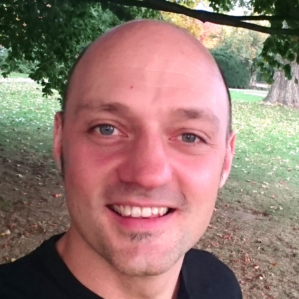 Lars Dittrich studied neuroscience at the Ruhr-University Bochum, Germany between 2005 and 2010, followed by a 4-year PostDoc at the SRI International in California, USA and a second PostDoc at the DZNE in Bonn, Germany until 2019. He’s been a passionate hobby-science communicator for many years, participating in science slams, running his own blog and volunteering for the animal experiment communication group Pro-Test Deutschland. Since 2019, he is scientific editor of the award-winning (including the Order of Merit of the Federal Republic of Germany) science show maiLab starring Mai Thi Nguyen-Kim.
Lars Dittrich studied neuroscience at the Ruhr-University Bochum, Germany between 2005 and 2010, followed by a 4-year PostDoc at the SRI International in California, USA and a second PostDoc at the DZNE in Bonn, Germany until 2019. He’s been a passionate hobby-science communicator for many years, participating in science slams, running his own blog and volunteering for the animal experiment communication group Pro-Test Deutschland. Since 2019, he is scientific editor of the award-winning (including the Order of Merit of the Federal Republic of Germany) science show maiLab starring Mai Thi Nguyen-Kim.
Room 1. Career corner: A Stepping Stone for Careers in Life Sciences (Excerpts from the feminno program)
This session will be hosted by Daniela Gunz, Program Manager of the feminno career program and Gaby Rockmann-Partridge, professional communication trainer.
The session will be run as workshop format.
The workshop (open to all genders) will provide you - in a nutshell - an overview about the feminno program (www.feminno.ch). Daniela will give you some tips and tricks around Career Empowerment and Gaby, in her compact mini-workshop, aims to strengthen confidence in your own negotiation skills even in challenging situations. First insights into gender-related different dealing with conflictual negotiations will help you to understand unexpected communicational behavior of the counterpart better.
The session will also have the collaboration of Carl Emerson from InsideOut Solutions.
More info about the feminno program? Visit their website.
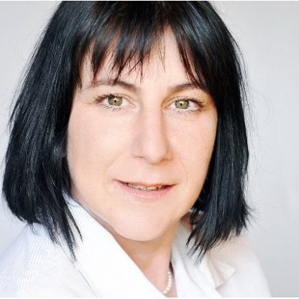 Dr. Daniela Gunz is the program manager of the feminno career programme. Daniela holds a PhD in biochemistry from ETH-Zurich. She has 15 years of experience in clinical research and drug development in big pharma with an extensive network in the Swiss clinical research environment. She co-founded hermelin GmbH in 2016. She currently works as student counsellor and project manager at the Career Services of University of Zurich.
Dr. Daniela Gunz is the program manager of the feminno career programme. Daniela holds a PhD in biochemistry from ETH-Zurich. She has 15 years of experience in clinical research and drug development in big pharma with an extensive network in the Swiss clinical research environment. She co-founded hermelin GmbH in 2016. She currently works as student counsellor and project manager at the Career Services of University of Zurich.
 Gaby Rockmann-Partridge studied visual communication in Düsseldorf, Germany and has worked in advertising and marketing for almost 20 years. From her enthusiasm for human communication, as well as her training and certifications in the areas of psychological and systemic counseling (among others), she currently develops her profession as communication and behaviour independent trainer. She accompanies people in change processes, conflict situations and challenging life phases.
Gaby Rockmann-Partridge studied visual communication in Düsseldorf, Germany and has worked in advertising and marketing for almost 20 years. From her enthusiasm for human communication, as well as her training and certifications in the areas of psychological and systemic counseling (among others), she currently develops her profession as communication and behaviour independent trainer. She accompanies people in change processes, conflict situations and challenging life phases.
Room 2. Science Communication with FameLab
“From Freak to Fame(Lab)”
In this breakout session, the three 2020 FameLab finalists Gwendolin Schönfeld, Beichen Gao and Celia Gasselin will share their FameLab experience and science communication passion. The participants are invited to an informal get-together and entertaining discussion on how everyone can become a great communicator of his/her science.
What is FameLab and its purpose?
Most people still imagine a less socially skilled person with messy gray hair in a stained lab coat when they hear "scientist". Exactly what this group does remains a mystery to a large part of the general public - but it certainly involves colored liquids and undulating vapors. A growing movement of young scientists has set out to change this misconception. FameLab is the largest science communication competition at regional, national and international level. The best participant will have the honor of representing Switzerland in the final of FameLab International at the Cheltenham Science Festival in the UK. The competition is hosted today by the British Council. In Switzerland, many partners, including Life Science Zurich, the Bioscience Network Lausanne, the Science Slam Club Basel and many more help to organize this science communication festival.
You can watch the Swiss final of 2020 on YouTube.
Who are the finalists?
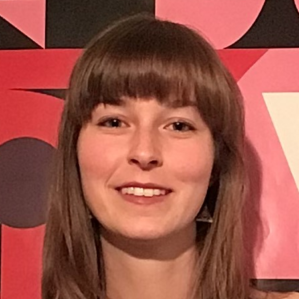 Gwendolin Schönfeld is currently doing a PhD in Neuroscience at the University of Zurich, where she investigates how neuronal computations change in the brain during learning. Before starting her PhD, Gwen did an internship with a public science TV show and today she is sometimes freelancing and writing about neuroscience in everyday life for several newspapers. Watch her latest FameLab video here.
Gwendolin Schönfeld is currently doing a PhD in Neuroscience at the University of Zurich, where she investigates how neuronal computations change in the brain during learning. Before starting her PhD, Gwen did an internship with a public science TV show and today she is sometimes freelancing and writing about neuroscience in everyday life for several newspapers. Watch her latest FameLab video here.
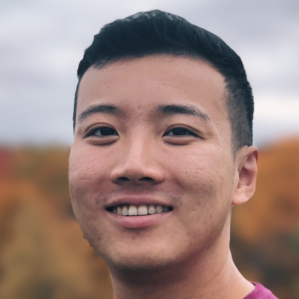 Beichen Gao is currently pursuing a PhD in Synthetic Immunology at the D-BSSE in Basel, Switzerland. He spends a significant amount of time talking about science in different locations (bars, boookstores...). As a science communicator, he sees every opportunity not only as a chance to promote the pursuit of science, but also as a chance to get experimental with different presentation techniques. Watch his latest FameLab video here.
Beichen Gao is currently pursuing a PhD in Synthetic Immunology at the D-BSSE in Basel, Switzerland. He spends a significant amount of time talking about science in different locations (bars, boookstores...). As a science communicator, he sees every opportunity not only as a chance to promote the pursuit of science, but also as a chance to get experimental with different presentation techniques. Watch his latest FameLab video here.
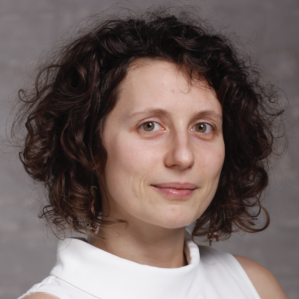 Celia Gasselin made her PhD in neurosciences helping to define neuronal plasticity rules and after a PosDoct at EPFL, she joined last year LabTwin, a start-up developing the world’s first voice assistant for laboratories. Since her university years, she kept on participating in public outreach events in parallel, passionately sharing science with simple words. Watch her latest FameLab video here.
Celia Gasselin made her PhD in neurosciences helping to define neuronal plasticity rules and after a PosDoct at EPFL, she joined last year LabTwin, a start-up developing the world’s first voice assistant for laboratories. Since her university years, she kept on participating in public outreach events in parallel, passionately sharing science with simple words. Watch her latest FameLab video here.
Room 3. Entrepreneurship and Start-Ups
This session will be hosted by Dr. Vincent Wagner, member of the Translational Accelerator, a service of the faculty of medicine for the promotion of biomedical innovation.
More information can be found here: https://ta.unige.ch/en/
In few words, their mission can be summed up in three axes: supporting the acceleration of medical research towards clinical therapies, promoting the key steps in medical translation to ensure a successful valorization, and encouraging the entrepreneurial skills needed to move toward commercialization.
The translational support is structured in the following steps:
- Ideations: Individual interviews with researchers in order to identify a potential for valorization, and to advise researchers towards the needed next steps.
- Shakers: Roundtables with industry experts to help evaluate ideas and generate new innovation to move projects towards commercialization. These projects are then analyzed and structured by experts.
- Bio-boosters (pre-incubation): Intensive coaching of entrepreneurs by offering them intensive mentoring.
- I-Teams: Creation of innovation working teams, bringing together senior and junior researchers around high-potential biomedical projects. I-Teams are multidisciplinary innovation teams that take high-potential research discoveries to define their best commercialization route and massively accelerate their translation into biomedical applications. In this process, they evaluate the impact of the technology in relevant markets and identify several segments where a fully developed product could make a high impact on public health
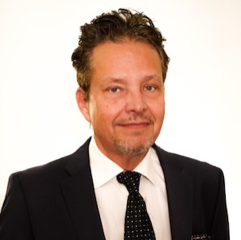 Dr. Vincent Wagner obtained his PhD in Biotechnology in 1990. He has conducted university research in five countries (France, Italy, Netherlands, USA, Switzerland). Over the past 25 years, Vincent has held positions in senior management (Director, Senior Director, Vice President) for several large multinational companies in the chemical, pharmaceutical, food and beverage, and medical device industries. More recently Vincent has worked as a consultant and/or lecturer for the University Hospitals of Geneva, World Health Organization, University of Applied Sciences, and the Inartis / University of Geneva Translational Accelerator at the Faculty of Medicine. Vincent has been involved in several start-ups, which have been later purchased by multinationals and is presently on the advisory board for the start-up cell therapy company Vanarix SA. Vincent holds his Bachelor and Master in Biology (Arizona, USA), PhD in Biotechnology (University of Lyon), and US-NSF postdoctoral studies in molecular biology (University of North Carolina at Chapel Hill, USA)
Dr. Vincent Wagner obtained his PhD in Biotechnology in 1990. He has conducted university research in five countries (France, Italy, Netherlands, USA, Switzerland). Over the past 25 years, Vincent has held positions in senior management (Director, Senior Director, Vice President) for several large multinational companies in the chemical, pharmaceutical, food and beverage, and medical device industries. More recently Vincent has worked as a consultant and/or lecturer for the University Hospitals of Geneva, World Health Organization, University of Applied Sciences, and the Inartis / University of Geneva Translational Accelerator at the Faculty of Medicine. Vincent has been involved in several start-ups, which have been later purchased by multinationals and is presently on the advisory board for the start-up cell therapy company Vanarix SA. Vincent holds his Bachelor and Master in Biology (Arizona, USA), PhD in Biotechnology (University of Lyon), and US-NSF postdoctoral studies in molecular biology (University of North Carolina at Chapel Hill, USA)
Room 4. Academic Funding
One of the major challenges along the way to becoming an independent scientist is acquiring funding. The trees in this jungle are called SNSF, ERC starting grant, Ambizione, Marie Curie Individual Fellowships, PRIMA, BRIDGE or Postdoc.Mobility, to name just a few.
But which funding source and program is suitable for which career step and stage? Where can I find helpful information? In this session, Beatrice Scherrer and Martin Bühler, experts from the UZH Grants Office, will take you on a tour through the funding jungle, after which you’ll be able to call every tree by its correct name.
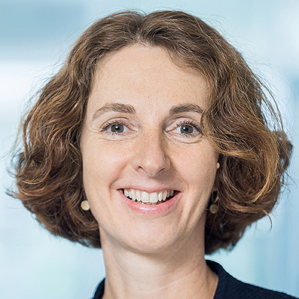 Beatrice Scherrer started her professional life with a commercial apprenticeship at the city administration before completing her university entrance qualification (Matura) for adults. She continued to study Biology at UZH, where she also obtained a PhD in Plant Molecular Biology. With this degree in her pocket, she went for a PostDoc at UC Davis, USA, supported by a SNSF Postdoc.Mobility fellowship. Since 2007, Beatrice is Research Manager at UZH Research Development and since 2008 Head of UZH Grants Office.
Beatrice Scherrer started her professional life with a commercial apprenticeship at the city administration before completing her university entrance qualification (Matura) for adults. She continued to study Biology at UZH, where she also obtained a PhD in Plant Molecular Biology. With this degree in her pocket, she went for a PostDoc at UC Davis, USA, supported by a SNSF Postdoc.Mobility fellowship. Since 2007, Beatrice is Research Manager at UZH Research Development and since 2008 Head of UZH Grants Office.
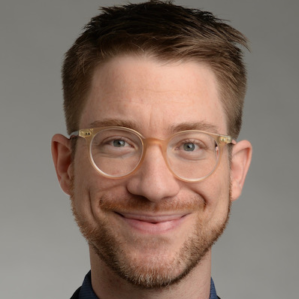 Martin Bühler obtained his Diploma in Sociology, History and Business Administration at the Universities of Lucerne & Zurich. Supported by a PhD Fellowship, he stayed at the DFG (German Research and Foundation)-Research Training Group "World Society” at the Faculty of Sociology, University of Bielefeld before completing his PhD in Economic Sociology as Research Assistant at the University of Lucerne. He then went further north for a PostDoc at the London School of Economics and Political Science, UK, this time funded by a SNSF Early Postdoc.Mobility grant. Since 2020, he is Research Manager at the UZH Grants Office.
Martin Bühler obtained his Diploma in Sociology, History and Business Administration at the Universities of Lucerne & Zurich. Supported by a PhD Fellowship, he stayed at the DFG (German Research and Foundation)-Research Training Group "World Society” at the Faculty of Sociology, University of Bielefeld before completing his PhD in Economic Sociology as Research Assistant at the University of Lucerne. He then went further north for a PostDoc at the London School of Economics and Political Science, UK, this time funded by a SNSF Early Postdoc.Mobility grant. Since 2020, he is Research Manager at the UZH Grants Office.
About the Chairs of YSS 2021
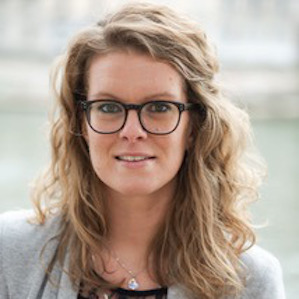 Dr. Alexandra Bondaz, University of Geneva, Post-doctoral researcher.
Dr. Alexandra Bondaz, University of Geneva, Post-doctoral researcher.
During her Master thesis, she studied the longevity of C. elegans in the group of Dr Aguilaniu Hugo at the ENS of Lyon. In 2014, she joined the PhD program of the University of Medicine in Geneva and started her PhD in collaboration with the laboratories of Monica Gotta and Patrick Meraldi. In 2018, she won the best poster prize of the PhD retreat of the faculty of Medicine of the university of Geneva. Currently she continues her work as a post-doctoral researcher in Monica Gotta’s lab before starting new adventures in 2021. Besides the lab, Alexandra likes to hike, travel and take time to “breath” by doing some Tai Ji.
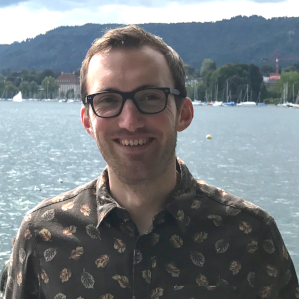 Dr. Michael Bachmann, University of Geneva, Post-doctoral researcher.
Dr. Michael Bachmann, University of Geneva, Post-doctoral researcher.
Michael studied Biology and Physics at the Karlsruhe Institute of Technology (KIT, Germany) with the initial idea of becoming high school teacher. He made his master thesis and PhD studies in Prof. Martin Bastmeyer's group. He left academia to obtain a teacher certificate (2015-2017), but meanwhile he enjoyed teaching science, Michael realized that he missed academia and biological research. Michael is currently postdoctal researcher in Prof. Bernhard Wehrle-Haller's group at the University of Geneva. His research focuses on cell adhesion, specifically integrins and their interaction with cytokines of the TGFβ family.
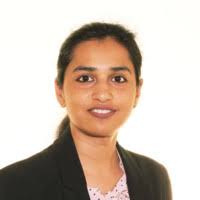 Dr. Shalu Jhanwar, University of Basel, Senior Post-doctoral associate.
Dr. Shalu Jhanwar, University of Basel, Senior Post-doctoral associate.
Shalu Jhanwar studied Bioinformatics at Banasthali University and at Jawaharlal Nehru University in India to obtain her MSc degree. In 2012, she joined a Ph.D. program in computational biology at The Centre for Genomic Regulation (CRG), Barcelona and and worked on epigenetics of neurodegenerative disorders and cancer genomics. Currently she works as a computational scientist investigating the role of epigenomics during development and evolution at the University of Basel. She is on the reviewer panel for peer-reviewed journals and is appointed as an academic editor at PeerJ. She is an active member of the organizing committee of major life science events including PIs of Tomorrow and Basel Postdoc Network Meeting. Besides, she enjoys working on multiple projects simultaneously and is keen to transform research outcomes into innovations. When she is not in the lab, you can find her dancing, writing, reading, and solving puzzles.
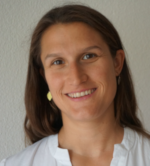
Dr. Noémie Frézel,University of Zurich.
Collaborator:
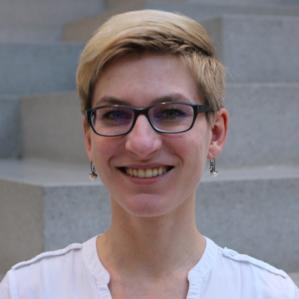 Dr. Fanny Georgi, University of Zurich, Post-doctoral researcher.
Dr. Fanny Georgi, University of Zurich, Post-doctoral researcher.
Fanny is currently post-doctoral researcher at the Department of Molecular Life Sciences, University of Zurich and co-president of the Junior Researchers at the University Zurich (VAUZ). She studied Molecular Biotechnology at the University Heidelberg and in 2015 she joined the lab of Prof. Urs Greber at the University of Zurich where she made her PhD studies on the spatio-temporal pattern of viral spread and novel inhibitors of viral infection. As co-president of the Association of PhDs, PostDocs and Assistants at the University of Zurich and as Member of the Swiss Young Academy, she remains strongly engaged in participation of the next generation of scientists.

